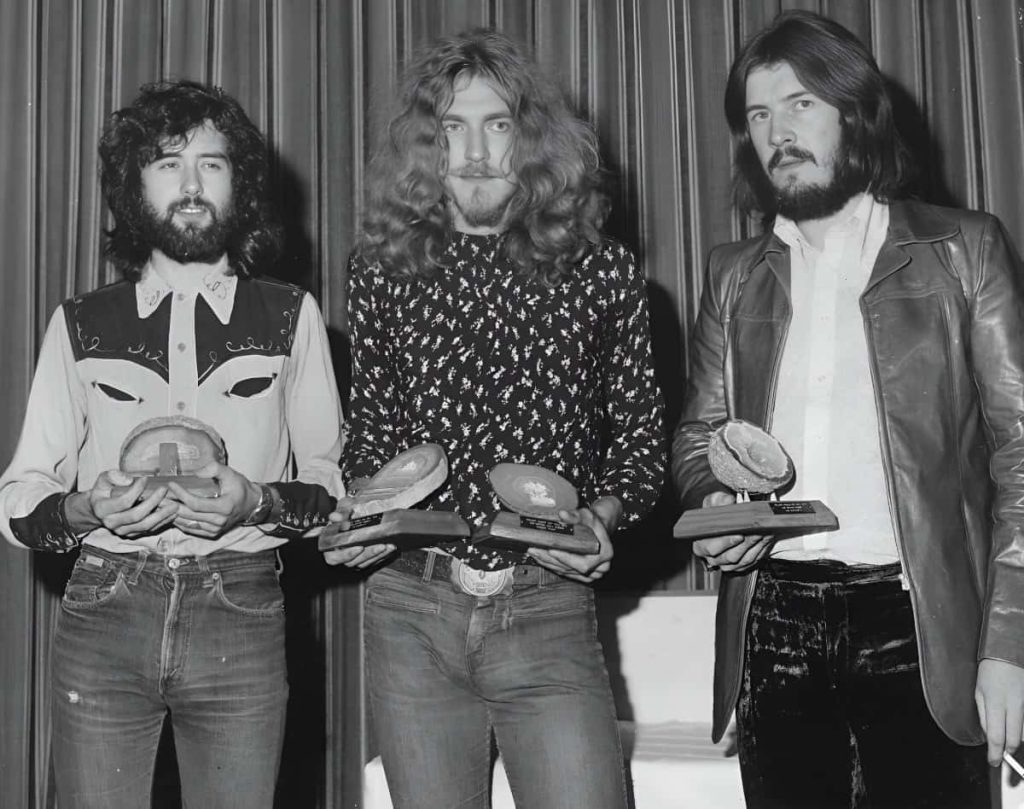
A Poignant Reflection on the Search for Peace and Fulfillment: Going to California by Led Zeppelin
Led Zeppelin, a name synonymous with rock royalty, gifted the world with countless anthems that continue to resonate across generations. Among their vast and impressive discography, “Going to California,” from their untitled fourth album (often referred to as Led Zeppelin IV), stands as a tender ballad, a stark contrast to their usual hard-rocking style. Released in November 1971, this album became a monumental success, cementing the band’s status as rock legends. While specific chart positions for individual tracks weren’t always tracked in the same way back then, Led Zeppelin IV itself topped charts worldwide, including the Billboard 200 in the US, where it stayed for multiple weeks. This undoubtedly gave significant exposure to every track on the album, including “Going to California.”
This song, with its gentle acoustic melody and Robert Plant’s heartfelt vocals, offers a deeply personal and introspective glimpse into the band’s mindset during a turbulent period. It wasn’t a single, per se, but it gained immense popularity through radio play and album sales, becoming a fan favorite and a staple of classic rock radio.
The story behind “Going to California” is multifaceted. It reflects the band’s experiences touring America, the allure of the West Coast, and a sense of weariness with the rock and roll lifestyle. Plant has mentioned the song as being partly inspired by Joni Mitchell, whom he admired greatly, and her influence on his songwriting is evident in the song’s poetic lyrics and folk-infused melody. The lyrics paint a vivid picture of a weary traveler seeking solace and a fresh start in the promised land of California. The imagery of “softly, with his song” evokes a sense of gentle yearning and a search for something more profound than the fleeting thrills of fame and fortune.
The song’s meaning resonates with anyone who has ever felt the pull of wanderlust, the desire to escape the familiar and embark on a journey of self-discovery. It speaks to the universal human experience of searching for peace, love, and a sense of belonging. The lines about finding a “queen without a king” have been interpreted in various ways, from a search for an ideal partner to a metaphorical representation of finding inner peace and self-sufficiency. It’s a reflection on the search for something real amidst the chaos and excess of the rock and roll lifestyle.
The instrumentation in “Going to California” is beautifully understated, allowing the lyrics and Plant’s vocals to take center stage. The delicate interplay of acoustic guitars, mandolin, and John Paul Jones’s subtle bassline creates a warm and intimate atmosphere. This stands in stark contrast to the heavier, blues-rock sound that characterized many of Led Zeppelin’s other songs, showcasing their versatility and musical depth.
This song isn’t just a collection of notes and words; it’s a feeling, a memory, a snapshot of a time. For those of us who remember the era when this music first graced our ears, “Going to California” holds a special place in our hearts. It’s a reminder of simpler times, of youthful dreams and the enduring power of music to transport us to another place and time. It’s a song that continues to resonate with listeners of all ages, a testament to its timeless beauty and enduring appeal. It’s a song that, like a cherished photograph, brings back a flood of memories and emotions, reminding us of the journeys we’ve taken, both literal and metaphorical.